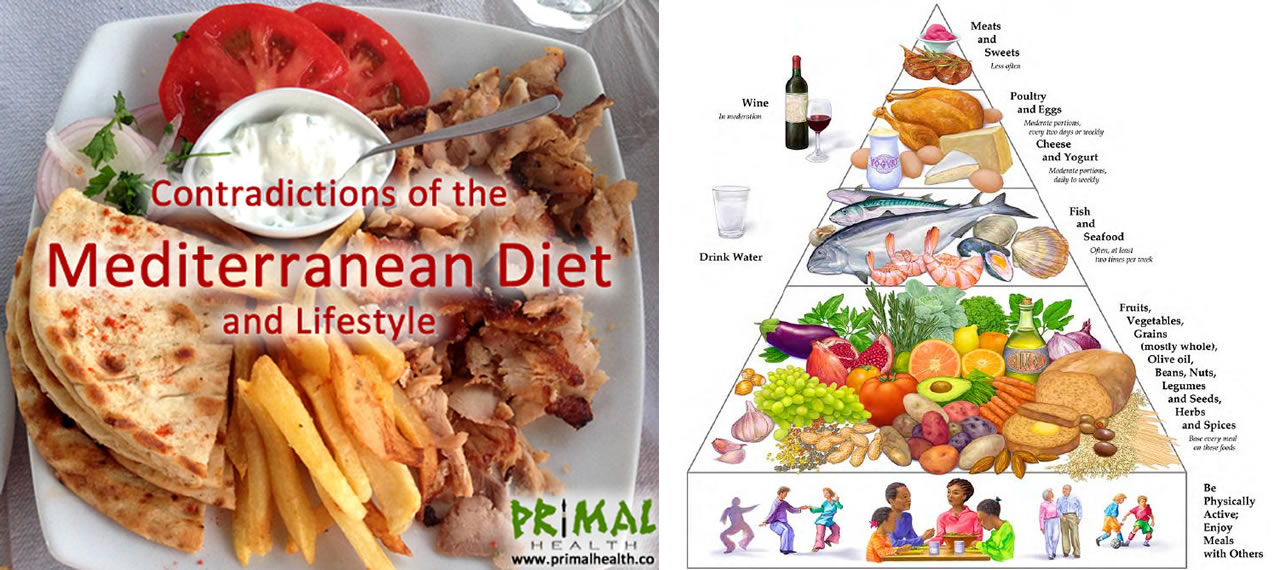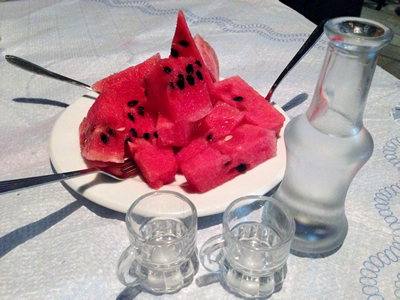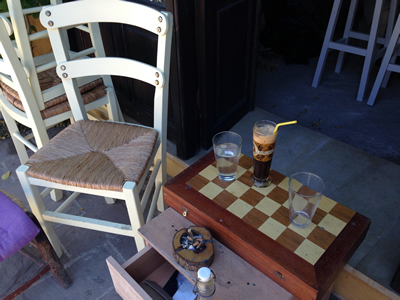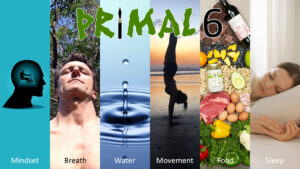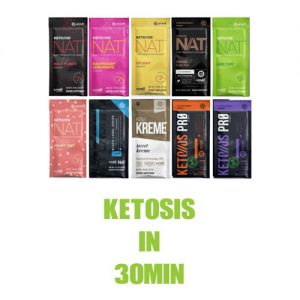Smoking, drinking, late nights, no breakfast and tons of bread! We were shocked by some of the Greek diet and lifestyle habits which strongly contradict their traditional healthy Mediterranean diet. Are we wrong in what we think are healthy choices? Or are we forgetting the most important key to good health?
Smoking, coffee & other favourite Greek pastimes
As I explain in What We Can Learn From The Mediterranean Diet, the Greeks have a beautiful real food traditional diet. However, when it comes to toxins and poor health habits, the Greeks have their fair share.
Smoking up a storm
We have never, ever, been in a country where people smoke so much (and we’ve traveled a lot!). The Greeks love their cigarettes and smoke anywhere and everywhere, with little consideration for other people or any health risks. A couple Greeks we met said they quit smoking years ago and now they suck candies instead, but no one ever talked about smoking as a problem, or talked about trying to or wanting to quit. Yet they are known for their longevity. Hmmm…
Raki, Ouzo and Wine…for good health
Drinking is also never frowned upon. On the contrary, alcohol is thought of as healthful. When you toast, or cheers, you say “yamas”, which translates as “to your health”. Greeks are very proud of their strong local spirits raki and ouzo, which are served at the end of every meal and called a ‘digestive’. And with all those grapevines growing madly, they have beautiful wines, which taste great with all their food. A book we found even shows the Mediterranean Diet Pyramid as including alcohol.
However, maybe this mindset about alcohol is what keeps it healthy, because it’s only ever consumed in great moderation. There is no social rebellion in drinking alcohol, so binge drinking and alcoholism is highly uncommon. Men sit in cafes sipping the same tiny shot of raki for hours, wine is served by the ½ liter for a few people to share over a meal, and beer is rarely drunk at all. And the rebellious youth? They drink coffee…
Caffeine all night long
Coffee is clearly the favourite national drink, and the social drink of choice for everyone from young Greeks in trendy city bars to old men in the village square. Frappes are the favourite – a combination of Nescafe and plenty of sugar whipped or blended until frothy. Though the old men may sit and sip the same coffee all afternoon, the younger generations seem to drink a huge amount, and well into the late hours of the night, since they go to bed so late.
Late dinner, no breakfast
In The Mediterranean, our primal pattern of sleeping and waking in rhythm with the sun is completely disregarded. Instead the Mediterranean sleeping and eating schedule goes like this:
7-10 am – Wake up and eat nothing except maybe a sesame bread ring
2-6 pm – Light lunch and a 2-3 hour nap
9-10 pm – Large dinner
1-2 am – Go to sleep
Instead of a nutritious breakfast, healthy lunch and light dinner, the Greeks are eating nothing until mid-afternoon, then eating their main meal after 9 o’clock at night! And aren’t they missing hours of restorative sleep by going to bed so late? Even the little children are out late with their families, eating at 9-10 pm and playing in the village square while their parents chat all evening. They still have to get up for school in the morning too…
The beloved bread
If the Greeks do grab a tiny breakfast, it’s usually koulouri on the run, a bread ring covered in sesame seeds sold at vendors on the streets. At lunch and dinner, giant loaves of sliced bread are served before or with every meal, to be dipped into a plate of fresh olive oil and maybe some dried oregano. Even if you order something that comes with bread already, like the popular gyro pitas, there will be a basket of bread on your table.
Bread is on the bottom of that Mediterranean food pyramid, along with rice and pasta, as the primary food group, just like on the USDA food pyramid. Though flour is not in everything, like in some cuisines, bread is always on the table and in the home, and many traditional foods incorporate filo dough and pita bread.
Traditional Greeks take pride in having fresh bread, and it’s still often home-baked or bought fresh-baked from the bakery. And bakeries are absolutely everywhere, chock-full of breads, pastries, cookies, mini ice creams, chocolates and candies.
It is true that the Mediterranean societies have always been agricultural, and that grains, especially wheat, are an integral part of not only their cuisine, but their culture. So maybe their metabolic type is suited to eating so much bread? We do know many Europeans who eat bread and cheese all their life, but it’s only when they move to Australia or America that they easily gain weight from eating these things. So maybe it’s a matter of traditionally made breads versus commercially processed versions.
So how do the Greeks stay healthy?
Despite all these factors, the Greeks remain on all the long life-span lists and are known to be in general good health.
Maybe these contradictions are a sign of modern commerce crowding out traditional ways, or maybe the Greeks and other Mediterranean peoples have just found a balance in diet and lifestyle that works for them. Some of these habits may well be moderated by their stable traditional food culture. Or maybe we are simply wrong in our own assumptions about what is a healthy lifestyle, and the Greeks have it all figured out.
The Greek mindset is a healthy one
It’s probably most likely that the Greeks have simply found a balance in their Primal 6 – Thoughts, Air, Water, Food, Movement, Sleep. And since Thoughts are the most important, how about we look to the Greeks as a model for healthy Thoughts, as much as we do with their Mediterranean diet.
The Greeks prize family and community. They work, rest, play and eat with their large families, friends and community. They leave work for several hours in the afternoon to eat and nap with their loved ones, then meet up with the whole community again in the village square for dinner, playing and talking all evening. Meals are usually long, social or intimate affairs. They take care of the elderly in their family, including them in home and social life. Their Greek Orthodox Church brings a sense of community to the people, without obligation or guilt. And there’s no guilt, stress, or remorse felt about eating, smoking, drinking and indulging…only enjoyment.
Thoughts are more important than diet and lifestyle
It’s these thought principles that create contentment and a healthy, happy mind, which in turn keeps the body strong and vital. In many young societies like America and Australia, we are so focused on diet that we fail to see how unhealthy our modern thought principles are making us.
Almost every story I have read about a person who has lived beyond 100 years old without serious illness or disease reports that they are surrounded by friends and family and have regular social plans and gatherings. Many of them have paid little attention to their diet and exercise, and even regularly smoked and drank alcohol. There is definitely a pattern showing the power of Thoughts, and our month in Greece has reminded us of this most important aspect of our health.
Contradictions of The Mediterranean Diet and Lifestyle

